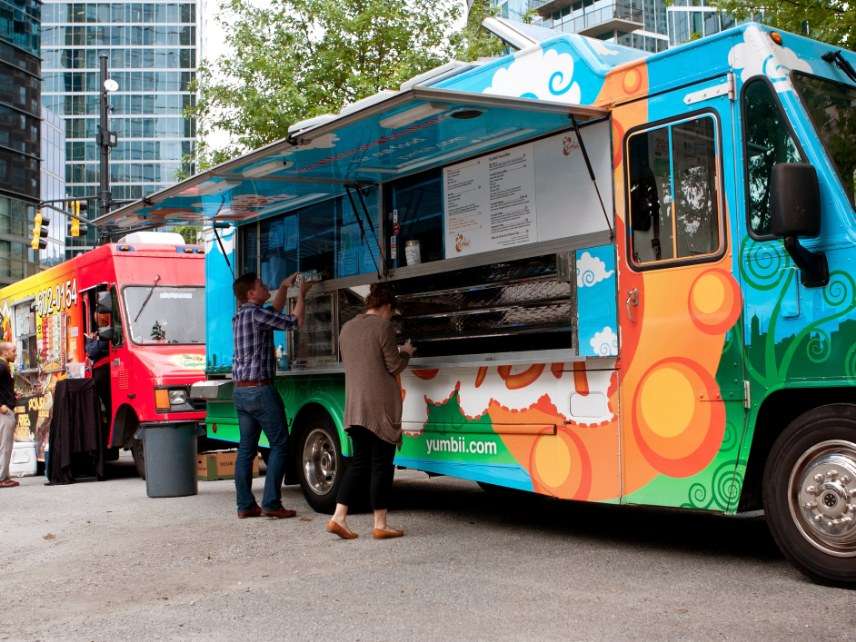Arizonans Get More Freedom to Operate Food Trucks, Grow Hemp
Maybe don't do both, though.

Hey Arizonans: Food trucks may be coming to a desert oasis near you. And industrial hemp may start showing up in your farmlands.
Gov. Doug Ducey just signed two bills giving Arizona citizens more economic freedom. The first creates a framework for food trucks to operate more freely across the state. H.B. 2371 essentially sets up rules about setting up rules: It tells municipalities what sorts of regulations they may put on food truck operations. The law prohibits cities from passing regulations that are designed not to protect public health or safety but to shield traditional restaurants from competition.
Specifically, the law prohibits cities from: requiring food trucks to get special permits they don't require of other vendors; mandating that food trucks stay a certain distance from other commercial businesses; putting limits on hours of operation that are different from those of restaurants; restricting food truck operations on a private property location (though they may prohibit trucks from operating in a spot for more than a 96 hours in a row); or stopping food trucks using parking spaces (including metered parking) to the same extent as other commercial vehicles. Cities will still be able to set up regulations prohibiting food trucks from serving in residential areas, and they can still shoo them away from airports, transit facilities, and county parks. The bill was designed following tips from the Institute for Justice, which has produced a guide to help cities craft food truck ordinances that focus on health and safety rather than protectionism.
The law was, interestingly, pushed by a state legislator who also operates a barbecue truck. The Arizona Republic reports that Rep. Kevin Payne (R-Peoria) was inspired to pursue the law when he encountered wildly different regulations traveling from city to city, many of them obviously in place not for the public's service but to protect entrenched brick-and-mortar restaurants:
He said some cities don't allow food trucks to operate after 9 p.m. Others prohibit trucks in upscale areas. A few localities even require his food truck to have a certain size of trash can.
Payne said that's why, when he became a state lawmaker last year, he started working to deregulate food trucks. He said the bill would treat food trucks the same as other commercial vehicles, so cities can't create special requirements to keep them out of public spaces.
The bill would also let them operate during the same hours as restaurants, he said.
"I just want an even playing field," Payne said. "We're trying to make a living and we shouldn't have to jump through all these hoops to do it."
On the same day, Ducey also signed into law a bill that funds a pilot program to bring industrial hemp farming and manufacturing to the state. The law was crafted to distinguish hemp from marijuana by mandating the crop have no more than .3 percent tetrahydrocannabinol, a.k.a. THC—the psychoactive part of marijuana that gets folks high. As with every new commercial venture getting the government's stamp of approval, there will be a costly permitting and licensing process. Arizona will be setting aside $500,000 to pay for hemp inspectors.
The Arizona Capitol Times notes that even with strong rules, it has taken years for the state to grant permission to grow hemp. A 2001 bill that would have allowed universities to research hemp as an agricultural product was vetoed by the then-governor.


Show Comments (9)